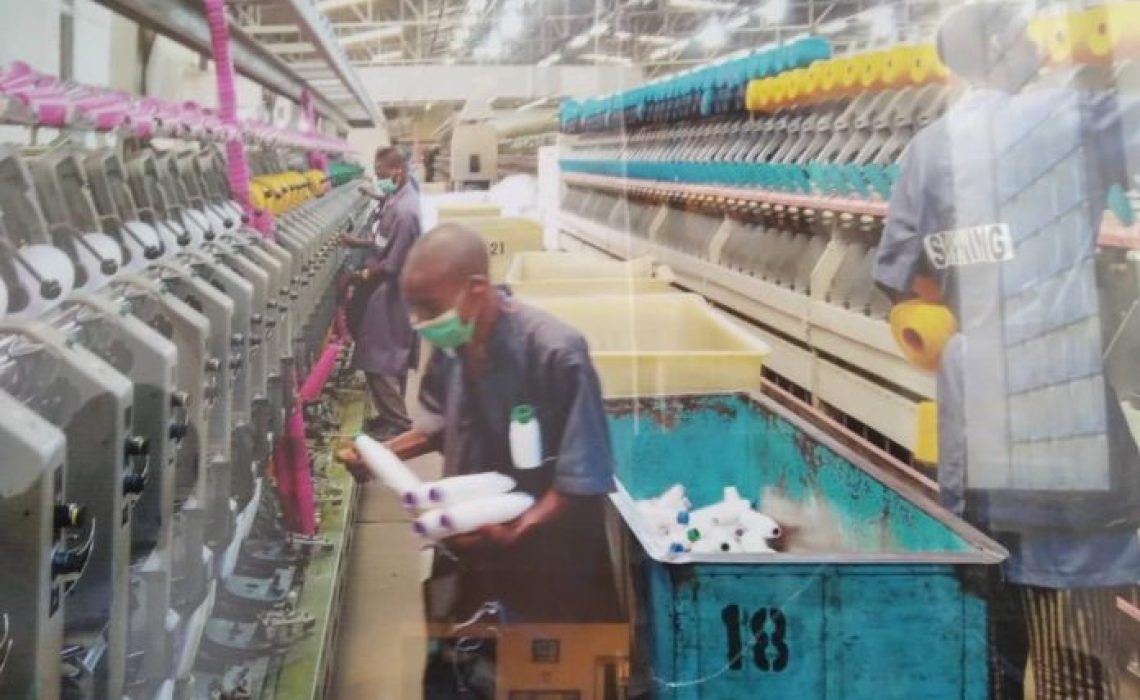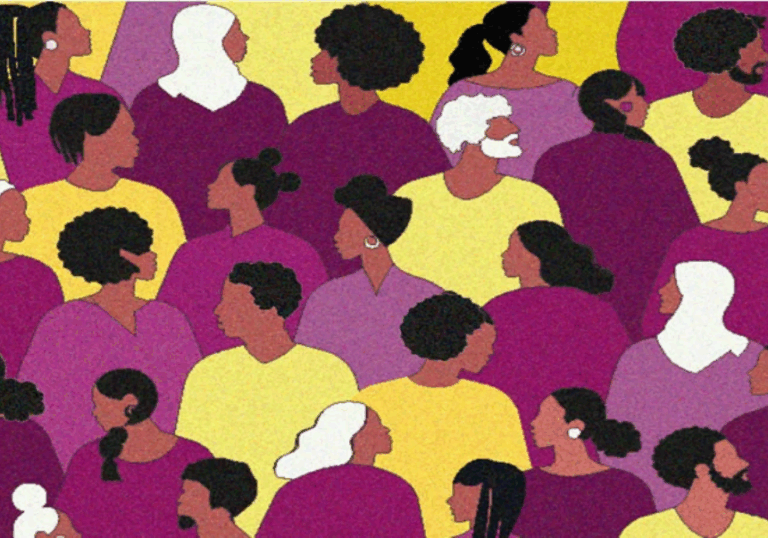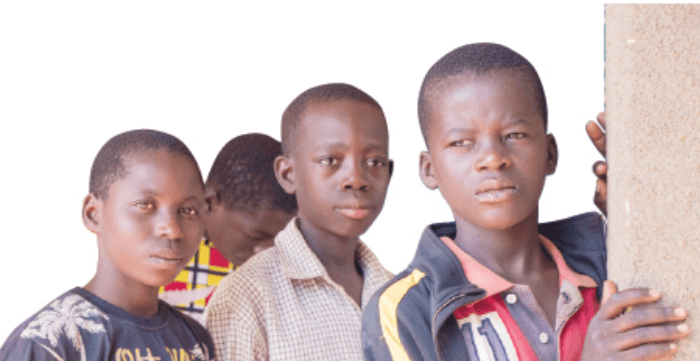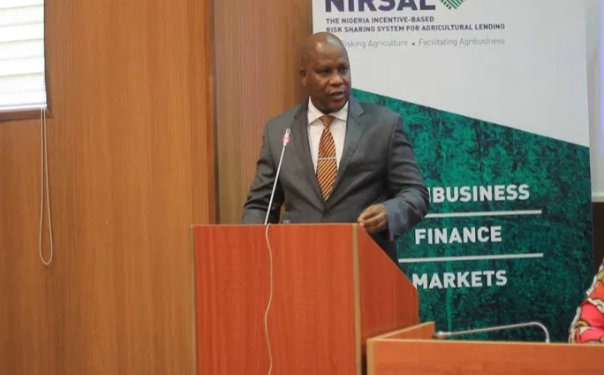Industries producing essential and non-essential goods in Kano State which closed down their operations at the peak of the coronavirus pandemic are yet to recover from the impact and return to normal businesses, WikkiTimes’ investigations reveal.
From manufacturers of plastic mats, Polyvinyl Chloride pipes (PVC), plastic household utensils to textile and processed food, the firms are estimated to have lost over N10 billion and still counting.
The industries’ woes were compounded by cut in the supply chain of their raw materials following lockdowns in Europe, America and Asia as well as delay and difficulty in importing raw materials that characterised the aftermath of Nigeria’s lockdown.
WikkiTimes’ correspondent who was in Kano reports that the COVID-19 pandemic had forced some of the companies to lay-off their casual and unskilled staff, while others slashed their workers’ pay to survive the turmoil.
Supplying about 12,000 belts of Number 1 and Number 2 mats (sizes here) to retailers within and outside Kano State, Tanko Trading Nigeria Limited is the major dealer of plastic prayer mats in the state, managed by Alhaji Sani Gambo Tanko-the Chairman Kano State Plastic Mat Sellers Association,
The trading firm purchases the products from local plastic mat manufacturers in Kano such as Rumbu Industries Ltd, Mamuda Agro, Silver Plastic, Ziba Plastic, S. Roda & Sons and Mama Sannu.
However, as of 29th November, Tanko Trading has stopped supplying the products to their retailers, because of what Alhaji Sani Gambo called impending price increase of the products by the local manufacturers.
“As I am talking to you based on past experiences, the local mats manufacturers will in the next few days increase their prices due to difficulty in importing raw materials following restriction of movement of goods internationally as the result of the COVID-19 pandemic, which caused increase in prices of their raw materials such as Polypropylene (PP), Master Batch/Pigment and Threads. The companies must increase the prices of their commodities, otherwise they would be running at lost and force out of business.”-emphasised Alhaji Tanko.
Though, the plastic mats companies have not formally increased their prices since the coronavirus outbreak, the cost of plastic mats in the markets have already jumped up by over 22% due to shortage of the commodities following the closure of the factories during the lockdown and drop in their output afterward.

The increase in the prices of the mats was principally necessitated by the fact that the plastic mats industries import their raw materials and therefore had to contend with delay in the arrival of their imported goods and clearance at the entry ports.
A director at one of the plastic prayer mats companies, Rumbu Industry Ltd, Alhaji Sani Hussani Saleh, told this medium that since the outbreak, importation and clearing of their raw materials became a daunting challenge. “Once you import your goods, it takes between 3 and 4 weeks before you can clear it down to your factory”, recounts Saleh.
Even before the formal lockdown in Nigeria, many of the companies were already experiencing difficulties in importing their raw materials following lockdowns in other parts of the world which begun in the later part of 2019.
The head of banking and imports of Nigerian Spinners and Dyers, Abdullahi Yusuf, says “You know Europe, America and far East have shut down their countries well before us, the impact of which was getting our supplies became difficult and almost impossible”.
For Marshal Group of Companies, producers of Marshal cheese balls and Marshal biscuits which also imports one of its major raw material (butter), the administrative manager of the company Umar Imrana, said COVID-19 pandemic has dealt a huge blow on their import levels, thereby affecting their production output.
COVID-19 induced drop in production and increase in products prices do not only affect companies that rely on imported raw materials for their production. Industries whose raw materials are locally produced, also grapple with inflation, low demand/patronage and difficulty in sourcing the materials.
In the case of Better Nigeria Ltd which produces peanuts and supplements for malnourished children, the situation is akin to battle for survival, as the prices of the company’s major raw materials (groundnut and soya beans) refused to nosedive even in the wake of current harvest season in northern Nigeria.
The Business Manager of the company Hassan Mujitaba told this medium that a 100kg bag of Soya beans is now sold at N16,500 during harvest season (when it is supposed to be cheaper), as against N14,000 during off-season (when it is supposed to be expensive) last year.
“Before COVID-19 something you could get at a lower price, but since the outbreak of the virus inflation has set in, affecting the cost of almost all our raw materials.
It affects the selling price as well and brought down the demands. We are managing to get little profit to sustain the business,” says Hassan Mujitaba, the business manager of the company.
Across the major industrial zones in Kano vis-à-vis Chalawa, Bompai and Sharada industries producing both essential and non-essential goods were negatively affected by the COVID-19 pandemic in different ways.
The companies have had their sources of raw materials cut off thereby causing increase in their prices, lost revenues due to closure of the factories at the peak of the pandemic and are now operating below their pre-COVID-19 capacity occasioned by low demand of their products due to low purchasing power of the citizens.
As a result, some of the companies had to reduce the take home of their staff, lay off casual and unskilled workers and incurred huge debt and interests on loans from commercial banks.
The situation is even more disturbing for textile companies such as African Textile Manufacturers and Tofa Textiles whose market was dominated by cheap and goods of less quality from the Asian countries.
Loss of revenue, low patronage
The Manufacturers Association of Nigeria (MAN) in Kano State which has a membership of about 150 companies, said more than NGN10 billion had been lost by factories, following their closure for between 4 and 6 months due to the virus outbreak.
Chairman of the Association Sani Hussaini Saleh said about 65% of companies in Kano shutdown completely for between 4 and 6 months and upon resumption, the companies had to and are still battling with dwindling sales due to market contraction. “We have active members, about 150 but now most of them couldn’t come back to full capacity. We are operating at the average of 40% per cent at the moment” , The Kano MAN Chairman claims .

While some of the companies completely lost their businesses during the lockdown, others operate only based on demands from their customers.
For instance, the pandemic could be described as nothing short of a disaster for Marshal Group of Companies selected by the Federal Government to supply foods to states for students feeding under the National Homegrown School Feeding Programme. Before the pandemic, the company supplied 10,000 cartons of biscuits monthly to Kaduna, Kano, Jigawa, Zamfara and Sokoto states under the school feeding programme. This is besides their normal supply to the pre-existing customers before the introduction of the feeding initiative.
With the closure of schools occasioned by the lockdown, the government stopped the school feeding programme, thereby severely affecting the income of the company. When the lockdown was lifted, according to its administration manager, Umar Imrana, the company had to explore the open market option, which is hard to come by.
“Due to lockdown, schools were closed, and it affected our activities. We closed for four months. Now the school feeding is no longer going after the COVID-19 so we are producing for the markets. We have reached out to Suleja, Abuja, Maiduguri, Yobe, Katsina markets. Our production capacity is around 3000 cartons now, which we supply to markets. But before the lockdown we produced about 10,000 cartons which we supplied to government for the school feeding”.
Imrana who says the company is yet to return to full capacity till this day. He revealed that the loss during covid 19 was unquantifiable.

“We lost millions of Naira when the school feeding programme was stopped. Come to think of losing at least N9 million monthly and the feeding programme is still yet to be reactivated”, he revealed.
For Tofa Textiles, the company is still continuing to lose revenue even after return to operations after months of COVID-19 induced closure.
The company’s production capacity now dropped by almost half its pre-COVID-19 output according to the executive director finance and administration, Mohammed Bello Umar.
“Our capacity before COVID-19 was 80 per cent, in the region of 300,000 blankets a week. During the lockdown we closed down completely for six months and therefore lost dozens of millions due to the pandemic,” he explains.
Umar who is also MAN’s Vice Chairman in Bompai, recalled that per month Tofa Textiles had a turnover of between N5 and N7 million, all of which were lost throughout the 6 months when the company was under lock and key.
If its sales in the month of November is anything to go by, perhaps worse affected is African Textile Manufacturers ATM, which could be said to have lost billions of Naira during the lockdown.
Ahmad Muhammad Adamu, the special duties managers claimed that upon resumption of operations in September, the company received orders of branded materials from Niger and Mali worth over N800 Million which they successfully executed in November.
When asked how he could quantify the loss, the company incurred when it was closed down, Ahmed Adamu said “Wallahi I can’t say. It is not something we can calculate. Once there is a loss, there is a loss. When you close a factory, a full fledge factory, you know what that is. A factory where you have like 2000 people and you lock it down, it is serious money”.
Laying off of casual/unskilled staff, payment of half salaries
As the companies closed down in response to government directives, which inadvertently affected their revenues and production output, the staff who earn their daily bread directly from the institutions bore the brunt in a hard way.
Many of the factories halved the salaries of their workers, while others disengaged casual and unskilled workers at the peak of the pandemic.
The story of Better Ltd which produces peanuts and supplements for malnourished children typifies how the companies were forced to disengage some of their staff and barely managed to pay permanent staff a fraction of their monthly salaries.
The business manager of the company, Hassan Mujitaba, said salaries of the about 500 casual staff were outrightly stopped when the factory closed down in March. For the 200 permanent staff according to Hassan, the company only paid one third of their salaries, in order to retain them. “During the lockdown things were tough at least permanent staff had one third of their salary,” he explained.
While the company’s 200 permanent staff returned to work after the lockdown according to the business manager, only a fraction of the over 500 casual workers was invited back.
“We invite the casual or ad hoc staff according to production or work at hand,” says Hassan. “If we have huge orders, we invite a large number of them. If it is not much we regulate the number.
The company now operates at 50% capacity down from 80% before the pandemic.
‘Before COVID-19 the output was at least 80 percent but after COVID-19 it has dropped to 50 per cent,” claims Hassan.
This according to him was partly due to dwindling sales and low patronage which was the aftermath of the lockdown. “Honestly the output reduced because even the customers that will come and patronise us are complaining that they don’t have enough funds but that is how we manage with the situation.
Months after, production resumed, Hassan pointed out that the company is still yet to recover from the shock. “We made a lot of sacrifices because there was no business in the early stage of return and the company had to give little money to workers that they can manage in the time being,” he said.

In Tofa Textiles, the executive director finance and administration, Mohammed Bello Umar, lamented that the company had to ration the staff weekly upon resumption of production after the lockdown and therefore paid them based on work done.
Umar, said the company’s management staff were also not paid throughout the lockdown period in order not to drain its finances and force it go moribund as is the case with dozen others in the Bompai area.
“For that period of time, we stopped all payments and when we returned it was based on pay as you work in the different departments like spinning, weaving, as well as finishing and colouring. The spinning would come for a week or two, they produced the thread, we pay them for that and by upper week the next department would come. So that was how we structured our payment. No worker is happy that salaries were slashed but they understood,” he says.
Its counterpart, African Textile Manufacturers ATM, managed to pay between 60 and 80% of its workers’ salaries when the factory was closed in compliance with the lockdown order. However, when the lockdown lasted beyond their expectation the company had to lend money from commercial banks to continue paying the workers bill.
The special duties manager of ATM, Ahmad Mohammed Adamu, told this medium that “the wage bill of our workers is around N25 million. We had to go to the bank and beg for loan to pay workers with the hope that things will change. At a point during the pandemic we paid 60 or 80 per cent for three or four months”.

Rumbu industries Ltd which manufactures plastic prayer mats had 800 staff on its payroll before the pandemic, 400 of whom are casual staff.
When the company closed down for 4 months between April and July, Rumbu industries Ltd stopped the salaries of all the over 400 casual staff. However, the management of the company purchased and distributed staple food items such as rice, pasta and macaroni to cushion their hardship.
“Like I told you, we pay the confirmed staff only basic salary throughout the pandemic. By basic salary I mean meal subsidy, transportation, and what have you, but other allowances were put on hold until when we resumed in August”, said Alhaji Sani Hussaini Saleh, a director in Rumbu Industries Ltd.
One of the casual staff at Tofa Textile Ltd who wanted to be identified as Abdullahi Dogo said the complete stoppage of their allowances during the lockdown and the subsequent pay per work policy adopted by the company had seriously taken their toll on him and his colleagues who depend on the company for their survival.
Dogo, a father of 3 pointed out that during the lockdown his wife had on several occasions begged for food for them in the neighbourhood. Sometimes what we have in the house cannot even be enough for the kids, and therefore we had to give them and go to bed having only taken lipton and sugar”.
When the lockdown was over, Dogo said he quickly resorted to selling sachet water at Kwari market to augment the shortfall in his income from the company.
BOI/CBN Intervention Fund
To revitalise the manufacturing sector in the country, the Federal Government rolled out a N235 billion Fund for re-financing and restructuring of banks’ loans to the manufacturing sector.
The intervention jointly implemented by the bank of Industry and the Central Bank of Nigeria is aimed at fast-tracking the development of the manufacturing sector by improving access to credit to manufacturers.
It also seeks to increase output, generate employment, diversify the revenue base, increase foreign exchange earnings and provide inputs for the industrial sector on a sustainable basis.
However, many of the industries in Kano were unable to access this intervention due to what they call cumbersome procedures and the involvement of commercial banks, whose interest they say is to make profit in respective of the situations.
Chairman of the Manufacturers Association of Nigeria MAN in the State Alhaji Sani Hussaini Saleh said very few of their members made effort to access the packages due to the difficulty and risks involved.
“Accessing such fund is not as easy as you think of, and especially given the fact that you will be asked to get bank guarantee from the commercial banks. When you start dealing with commercial banks, they are making things very difficult for manufacturers. Commercial banks are not helping matters. Also accessing such funds come with a lot of issues. You have to give out a security which you may not have, or they will say what you have is not enough”.
Abdullahi Yusuf of the Nigerian Spinners and Dyers Ltd maintained that the time span required to meet the criteria is too long and therefore discouraging.
“The bureaucracy and procedure when many companies are hanging by the tread and can collapse any moment, is worrisome. So, companies in Nigeria don’t have that luxury of time,” he observed.
The Kano State MAN chairman appealed to the Federal Government to lessen the conditions for accessing the loans and its repayment terms for the benefit of the majority.
“It is not about rolling out palliative or whatever to manufacturers. But can the funds be accessed by the majority. If you rollout a package and only 5% of the manufacturers were able to benefit, then what is the essence? If you rollout a package, at least majority-that is 50 to 60% should be able to benefit from the package. But once majority cannot access it, that means there must be something wrong with that particular package. They need to retool it and see how majority can benefit”.
On his part, Abdullahi Yusuf also called on the Federal Government to ensure that there is an express route to access the funds by companies in dire need of it.
This report was facilitated by the Wole Soyinka Centre for Investigative Journalism under its COVID-19 Reality Check Project



